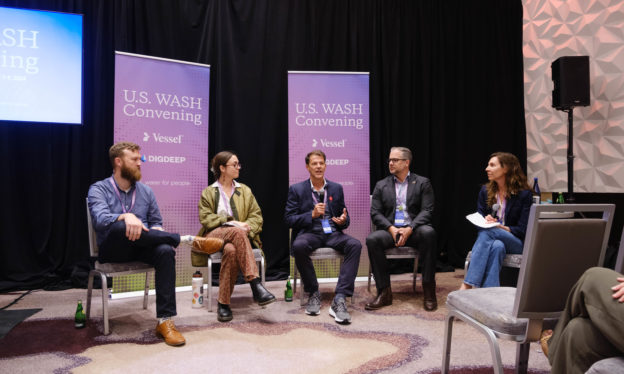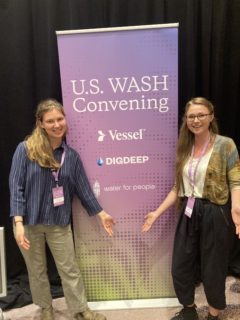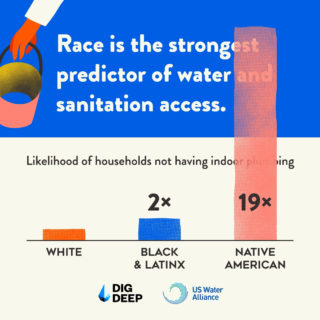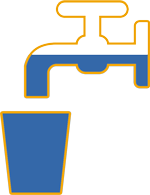Back to all articles
US WASH Convening 2024

Panel on Decentralized Solutoins, featuring Andrea Stowell, LIXIL (moderator); Tate Rodgers, Triangle Environmental; James Rees, Botanical Water Technologies; Stuart Coleman, WAI; Kelsey McWilliams, Point of Shift (© 2024 Michael Connor / Connor Studios, courtesy of Vessel Collective)
Julia Cavic chi (Education Director) and Gretchen Saveson (Research Associate) represented Rich Earth at the US WASH Convening on May 7-8 in Washington, DC. This convening, co-organized by Vessel Collective, Dig Deep, and Water for People, aimed to put a spotlight on water and sanitation challenges in the US and spark new collaborations to find solutions and drive change.
chi (Education Director) and Gretchen Saveson (Research Associate) represented Rich Earth at the US WASH Convening on May 7-8 in Washington, DC. This convening, co-organized by Vessel Collective, Dig Deep, and Water for People, aimed to put a spotlight on water and sanitation challenges in the US and spark new collaborations to find solutions and drive change.
Here’s an overview of we learned:
Water & Sanitation Challenges:
- 2.2 million people in the US lack access to clean water and sanitation.

- This number is estimated to be growing, due to the intersecting issues of environmental constraints, structural racism, lack of funding, and climate change.
- There are many regions where conventional options (sewering or septic systems) are not viable options.
- Current federal funding largely focuses on repairing and maintaining existing systems, and not necessarily helping those without any systems or affordable options. Even when funding is available, small and rural communities face significant barriers to applying for and implementing projects using conventional systems
Source Separation: A Piece in the Puzzle for Sanitation Solutions
- Source separation systems (including urine diversion, compost toilets, and greywater recycling) could offer a sustainable alternative to conventional systems.
- These systems are resilient to climate change, conserve water, and can be more affordable and easier to install. They can also be vital options for achieving disaster preparedness in climate vulnerable communities.
- Work is needed in several areas to explore the potential of these systems to be a part of the solution including:
- Regulation: New regulatory pathways to enable alternatives to sewer and septic systems.
- Available technologies: Further research is needed to understand how toilet and greywater reuse systems can work in tandem in different environments.
- Education: Collaboration and shared learning amongst allied organizations is needed to address misconceptions about compost toilets and ensure that all available technologies are included in the conversation about addressing community wastewater needs.
- Social Research: Community engagement and co-design is critical to understand community desires around sanitation systems and what kinds of toilet and reuse systems might meet their needs.
Overall, we learned about the importance collective action – coming together to raise a unified voice about the urgent need for new solutions to close the water access gap. Collaboration and allyship among organizations are crucial for creating new solutions and policies. We also learned about the importance of centering deep trust building work; partnering with and investing in community members to build trust and gather insights is essential to creating enduring solutions.
Further reading:

